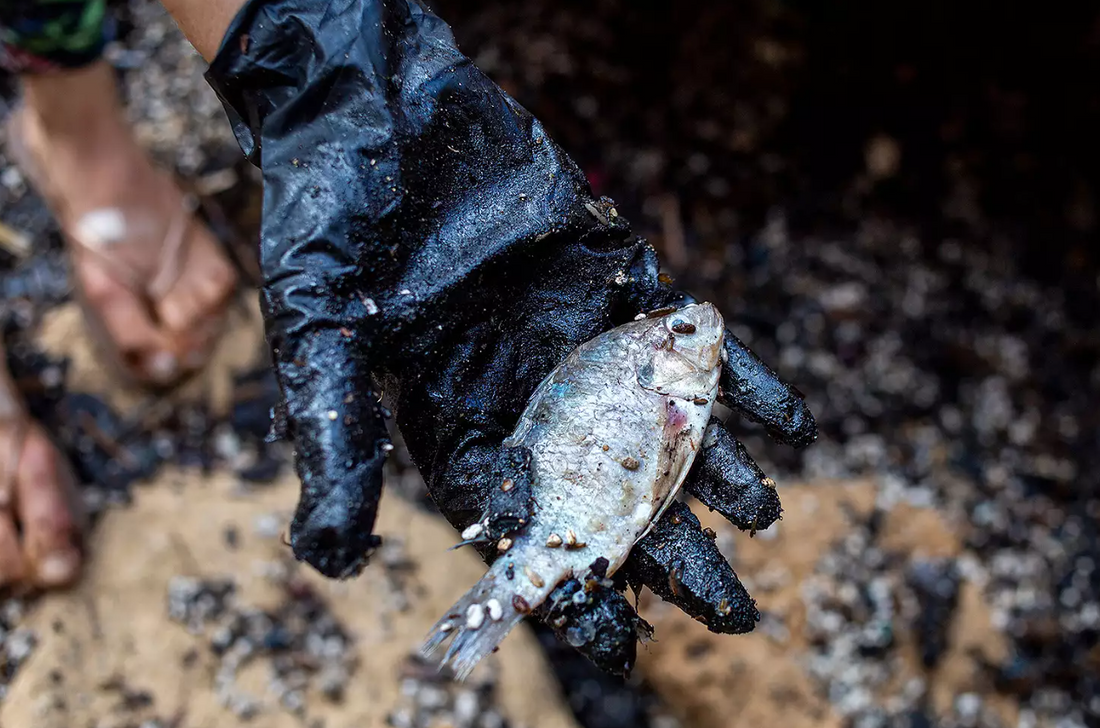The 2021 Mediterranean Oil Spill: An Ecological Catastrophe
Ashton Routhier
Share
Overview
The 2021 Mediterranean oil spill serves as a stark reminder of the risks associated with maritime oil transportation and offshore drilling. It highlights the urgent need for stringent safety measures and robust regulatory oversight to protect our coastal environments and communities from future environmental disasters. The ongoing cleanup efforts and investigations will be crucial in restoring the affected areas and preventing similar incidents in the future.

Introduction
In February 2021, an ecological disaster struck the Mediterranean coast of Israel and Lebanon, known as the 2021 Mediterranean oil spill. This catastrophic event involved the release of a large quantity of oil into the sea, causing widespread environmental damage. The spill originated from an unidentified source, likely a passing tanker, which discharged oil that rapidly spread across a vast stretch of the coastline.
The environmental impact was immediate and severe. Marine life suffered greatly, with many species of fish, birds, and other marine organisms either killed or critically harmed by the oil. The sticky, toxic substance coated beaches, rocks, and marine habitats, disrupting the delicate balance of the coastal ecosystem. Sea turtles, which are already endangered, were among the hardest hit, with many found covered in oil, struggling to breathe and move.
The Incident
Starting on February 16, 2021, heavy storms and unusually high waves led to dozens to hundreds of tons of tar washing up on beaches along a 160-kilometer (99-mile) stretch of Israel's coast, from Rosh Hanikra to Ashkelon. These tar deposits also severely impacted the beaches in southern Lebanon, creating a widespread ecological crisis.
Immediate Response and Beach Closures
In response to the disaster, authorities in both Israel and Lebanon took immediate action. Beaches were closed to the public to prevent health hazards, and cleanup operations were launched to remove the tar from the sand and water. Volunteers and environmental organizations quickly mobilized to mitigate the damage and protect the affected marine life.
Investigation and Cause
Investigations into the cause of the oil spill are ongoing. The tar deposits appeared following a severe storm, suggesting that the oil spill may have originated from a maritime source, possibly an offshore oil rig or a passing tanker. Authorities are working to identify the responsible parties and prevent future incidents of this nature.
Economic Consequences for Coastal Communities
The spill also had profound economic consequences for coastal communities. The tourism industry, which relies heavily on clean beaches and a healthy marine environment, faced substantial losses as beaches were closed and cleanup efforts commenced. Local businesses, particularly those in the hospitality and fishing industries, experienced financial hardships due to the disaster.
Regulatory and Safety Measures
Review of Maritime Regulations
In the wake of the spill, there has been a renewed focus on reviewing maritime regulations and safety protocols. Authorities are calling for stricter oversight of offshore drilling activities and improved monitoring of maritime traffic to prevent similar incidents in the future.
Implementation of Stricter Safety Standards
Stricter safety standards and regulatory measures are being proposed to enhance the prevention, detection, and response to oil spills. These measures aim to ensure better protection of the Mediterranean's coastal and marine environments, safeguarding them from future ecological disasters.
https://en.wikipedia.org/wiki/2021_Mediterranean_oil_spill
